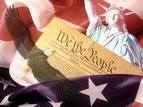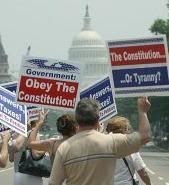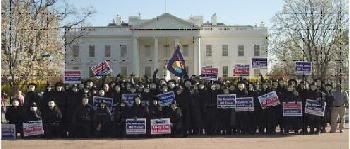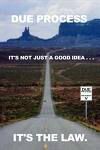Is the IRS lying and defrauding the American people? Hear from the man who beat the IRS Beast:
 Robert Lawrence
Robert LawrenceRobert challenged the IRS claim that he is required to file a 1040 Income Tax Confession Form and pay a Federal Income Tax. The U.S. Government charged him with committing “tax crimes”, but later dismissed these charges! The IRS dropped the case when they found out that Robert relied on the instructions within the IRS' 1040 booklet and the law. Robert had proof from these sources that he was not required to file. Hear how this living “David” won his victory over the paper-tiger “Goliath” (the IRS).
Read more here, here and here.
Also see Lindsey Springer website for video on this topic.












6 Comments:
Aaron keeps talking about having our leaders sign an affidavit stating that they will vote to destroy the Federal Reserve. My question is has anyone seen this affidavit? Where can we download one to get this started? The sooner the better.
See previous post.
http://www.judicialwatch.org
/constcrises.shtml
Battling Corruption - Constitutional Crises
Many politicians and judges are willing to forsake the language of the U.S. Constitution, and the clear intent of the Founding Fathers, in favor of their personal agendas and opinions. Judicial Watch believes the time-tested Constitutional values that make this nation the greatest on earth must be protected.
Watching the Courts - Judicial Monitoring Project
Through Judicial Watch’s Judicial Monitoring Project, JW has assembled a core of volunteers to monitor court proceedings, document the flagrant abuse of power in the state and federal court systems, and file complaints when necessary. JW’s Judicial Monitoring Project is transforming the way justice is served.
Watching the Courts
The laws of the nation are only as just and as effective as the judges entrusted with their interpretation. Unfortunately, far too often corrupt and incompetent judges make a mockery of justice in their very own courtrooms. Some legislate from the bench, favoring their own political agendas over the rule of law. Others take advantage of their positions of power, violating the rights of those who look to them for justice. Still others preside over cases in which they have a conflict of interest, refusing to recuse themselves from court proceedings.
Thank you "very" much. I just copied pages #1 + 8 of 10 @ 90%, to re-copy and tape next to the IRS forms at the local library and post office. The people ought to know about this #3 of the OMB# expires after three years, and the 1040 form with the same # now for 24 years!
United States v. Lawrence
Document Date: March 1, 2007
United States Court of Appeals
For the Seventh Circuit
Chicago, Illinois 60604
Argued February 5, 2007 Decided March 1, 2007
Before
Hon. FRANK H. EASTERBROOK, Chief Judge
Hon. ILANA DIAMOND ROVNER, Circuit Judge
Hon. DIANE S. SYKES, Circuit Judge
No. 06-3205
UNITED STATES OF AMERICA,
Plaintiff-Appellee,
v.
ROBERT LAWRENCE,
Defendant-Appellant.
O R D E R
On March 16, 2006 , a federal grand jury indicted Robert Lawrence on three counts of tax evasion under 26 U.S.C. §7201 and three counts of willful failure to file income taxes under 26 U.S.C. §7203, relating to the years 1999, 2000, and 2001. Shortly before trial, the government discovered an error in computing the tax amount due. Although that error impacted only some of the counts, the government inexplicably filed a motion to dismiss the indictment, and the district court granted the motion to dismiss with prejudice. Lawrence's response to this fortuitous turn of events was to file a motion for attorney's fees and costs under the Hyde Amendment.
The Hyde Amendment provides that "the court ... may award ... a reasonable attorney's fee ... where the court finds that the position of the United States was vexatious, frivolous or in bad faith ...." Pub.L. No. 105-119, §617, 111 Stat. 2519 (1997) (reprinted in 18 U.S.C. §3006A , historical and statutory notes). Lawrence argues that the government acted in bad faith or in a vexatious or frivolous manner in obtaining the indictment and pursuing the criminal case.
According to Lawrence, the Paperwork Reduction Act of 1995 (PRA) required the Internal Revenue Service to display valid Office of Management and Budget (OMB) numbers on its Form 1040 and the1040 tax form does not in fact contain a valid OMB number. Lawrence argues that the PRA by its terms prohibits the government from imposing a criminal penalty upon a citizen for the failure to complete a form where the information request at issue does not comply with the PRA. Lawrence never explains how this argument is even relevant to the three counts involving tax evasion, but even as to the other three counts, it must fail.
Although Lawrence recites the meaning of vexatious, frivolous and bad faith in an extensive quote of the government's filing, Lawrence fails to set forth how those terms are met by the alleged conduct here. Lawrence's brief represents an attempt to prove that the PRA could present a valid defense to the criminal charges. Yet Lawrence conceded at oral argument that no case from this circuit establishes such a proposition, and in fact Lawrence cites to no caselaw from any jurisdiction that so holds. In contrast, the government referenced numerous cases supporting its position that the PRA does not present a defense to a criminal action for failure to file income taxes, including: Salberg v. United States, 969 F.2d 379 (7th Cir. 1992); United States v. Neff, 954 F.2d 698 (11th Cir. 1992); United States v. Kerwin, 945 F.2d 92 (5th Cir. 1991); United States v. Hicks, 947 F.2d 1356 (9th Cir. 1991); and United States v. Wunder, 919 F.2d 34 (6th Cir. 1990). Nor is the correctness of Lawrence's position evident from the language of the PRA itself. Lawrence provides no explanation for how government conduct can be vexatious, frivolous, or in bad faith when there is no law contrary to it.
Lawrence's own definition of those terms is instructive. He notes that: vexatious means "without reasonable or probable cause or excuse," United States v. Gilbert, 198 F.3d 1293, 1298 (11th Cir. 1999); frivolous means "groundless," as where "the government's position was foreclosed by binding precedent," United States v. Braunstein, 281 F.3d 982, 995 (9th Cir. 2002); and bad faith is "not simply bad judgment or negligence, but rather ... the conscious doing of a wrong because of dishonest purpose or moral obliquity," United States v. True, 250 F.3d 410, 423 (6th Cir. 2001). He then spends the majority of his brief refuting the applicability of the numerous cases cited by the government. His refutation consists mainly of the argument that those cases addressed an earlier version of the PRA, but he makes no effort to explain how the reasoning in those cases is no longer relevant in light of the amendments to the PRA. His attempts at refuting those cases thus ring hollow, but that ultimately would not matter. Lawrence cannot simply argue that the government was wrong; he must argue that they are so wrong that the criminal case was vexatious, frivolous or in bad faith, and that the district court erred in holding otherwise. He has no case support for his argument that the PRA so clearly foreclosed the criminal action as to render the conduct vexatious, frivolous or in bad faith, nor does the language of the PRA establish that proposition. And that is all that matters in this appeal. That failure renders the myriad other arguments raised by the government irrelevant. It matters not whether the 1040 tax form in fact included a valid OMB number, because that is not the issue in this Hyde Amendment appeal. Nor does the standard of review ultimately matter here, because the appeal would fail regardless of the standard employed.
Lawrence makes a secondary argument which, as far as we can discern, asserts that the indictment did not charge a triable offense because it failed to reference the statutory requirement to file a tax return. A similar argument was rejected in Sloan v. United States, 939 F.2d 499, 501-03 (7th Cir. 1991), and Lawrence makes no effort to distinguish that case. In fact, Lawrence again supplies no case support for his argument, let alone any cases establishing that the inadequacy of the indictment was so clear as to render the government's conduct vexatious, frivolous or in bad faith. The district court properly denied the request for attorney's fees under the Hyde Amendment. AFFIRMED.
So in other words, you can win the defense but not the offense to recoup costs and attorneys fees, since the gov't is allowed to act recklessly! even to the point of being a liar, as on those postal reports for structuring!!
Post a Comment
Subscribe to Post Comments [Atom]
<< Home